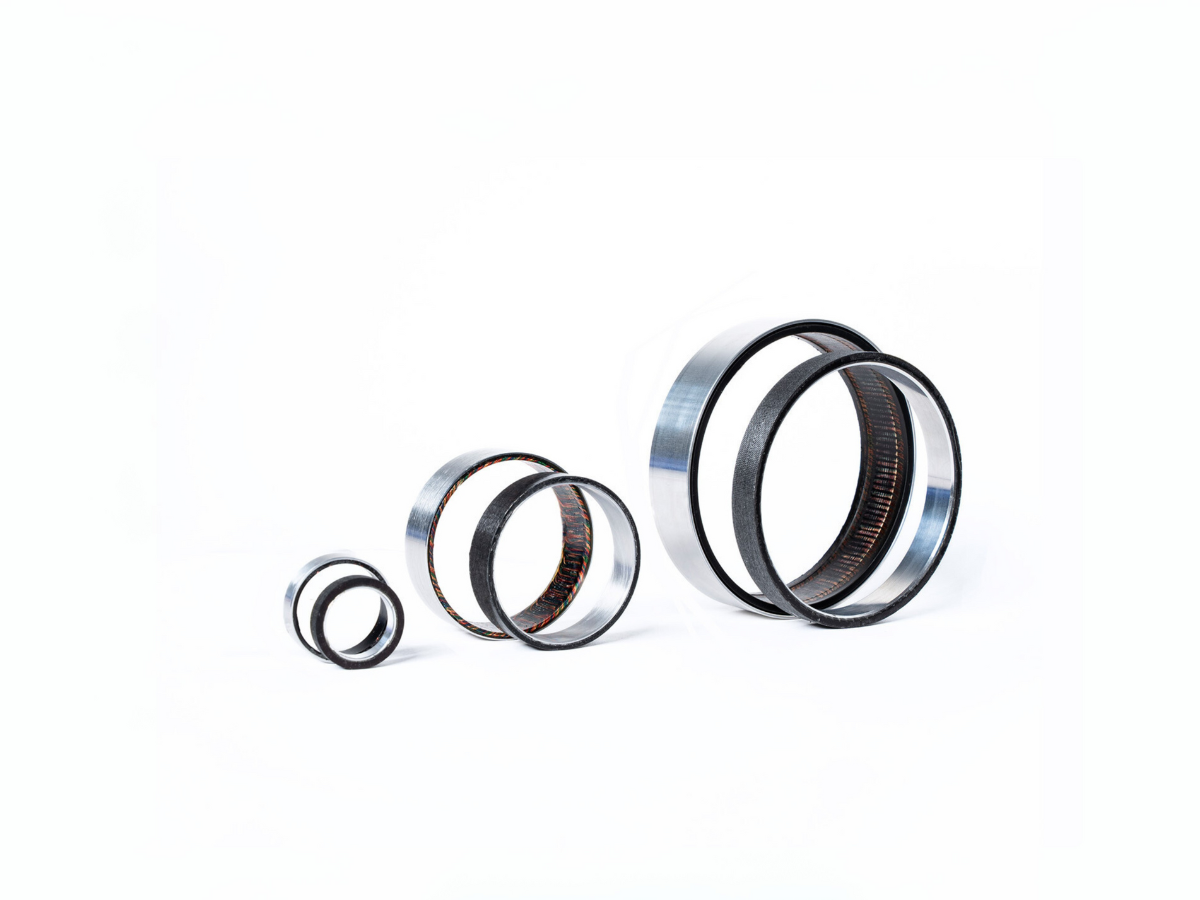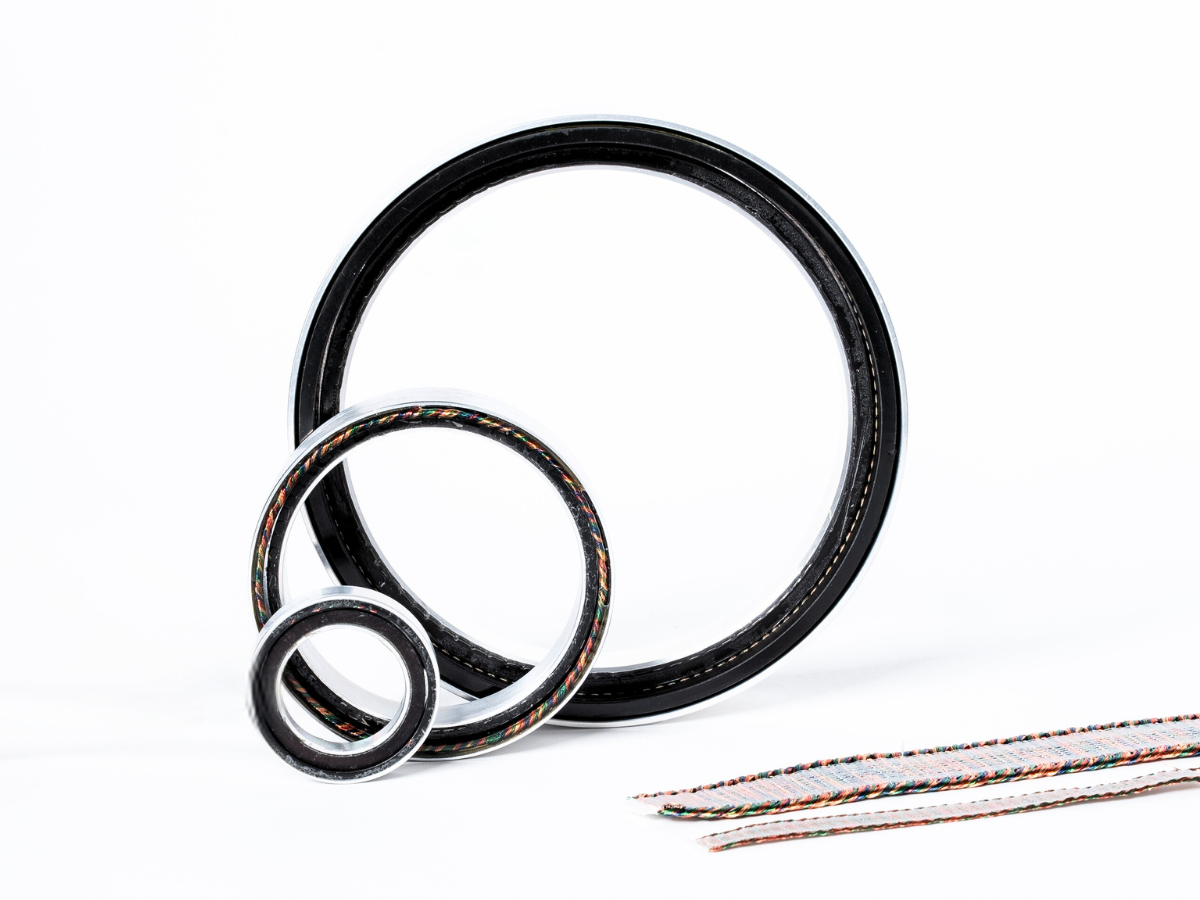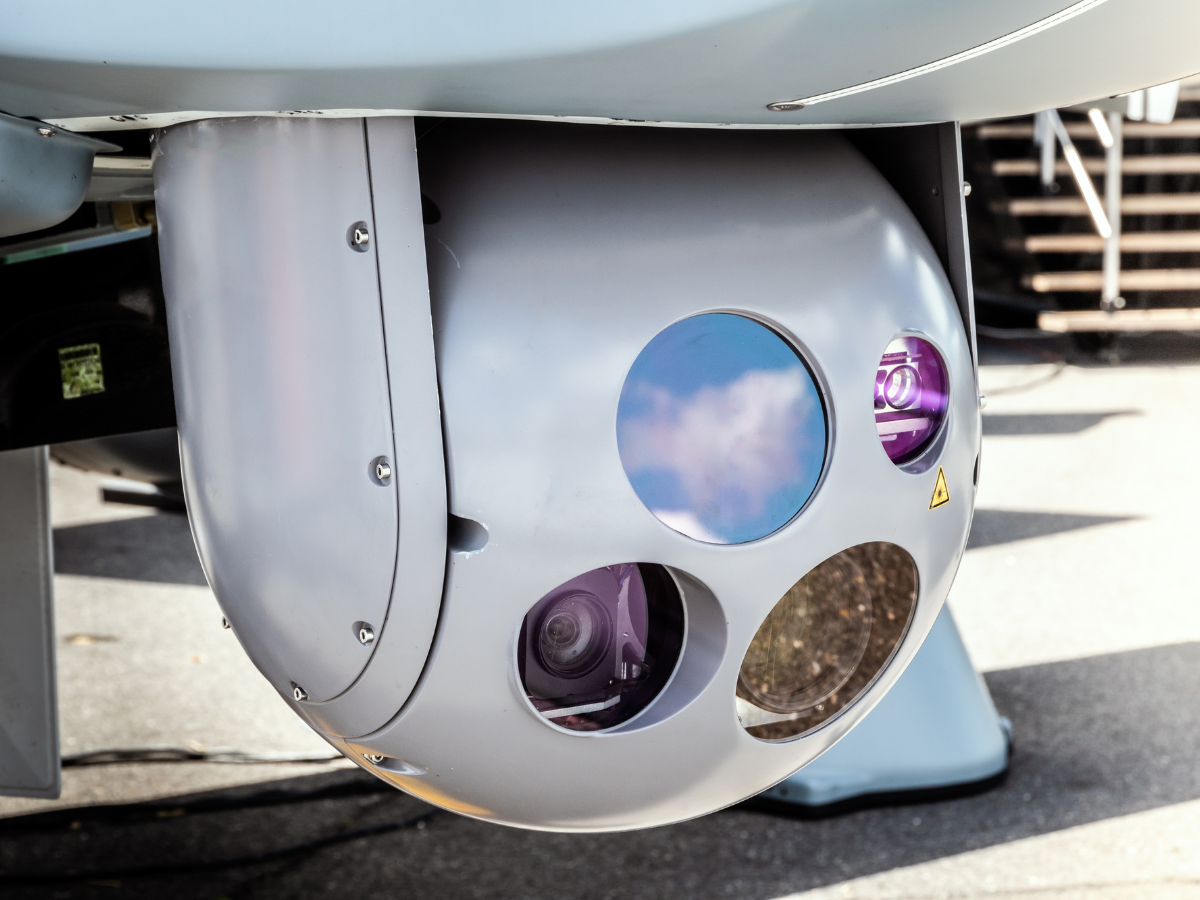
Gimbal Motor
Gimbal Motor
A gimbal motor is commonly called a motor that is used in a gimbal system to orient and stabilize a sensor, camera or other sensory equipment. These motors can be of different types with different advantages and disadvantages, most frequent though is the need for a high accuracy motor that can operate at low speeds with a high holding torque and high torque at low speeds. Typically, these motors operate without a gear in a direct drive approach to avoid backlash, save weight and utilize the space for other components such as slip rings and encoders.
Alva’s offering for gimbal motor is a slotless frameless motor with a compact shape, low weight and a high torque density. This is made possible by the FiberPrinting™ manufacturing method, which creates non-skewed, high copper density windings and stators. These two factors, together with the Halbach array rotors, creates very efficient motors, which therefore can be made very lightweight, compact and powerdense. This technology also allows for motors with a high number of poles, which helps to increase positioning accuracy and high low-speed torques. The motors are slotless and very simple in their shape, allowing for a cogging free motion, perfect for all gimbal applications.

SlimTorq as Gimbal Motors
Alva’s standard SlimTorq™ products are perfect to be used as gimbal motors. These products cover a range of sizes and torques, and come in two versions: Max and Light (Max is for maximum torque output, and Light is for lightweight). The largest standard motor as of right now is 160 mm in diameter, and the smallest one is only 25 mm in diameter. With different wire termination options and sensor alternatives such as Hall effect and Temperature sensors, it’s possible to meet most customer requirements. There are no limitations in terms of size, custom motors of any size can be made.
To learn more about the SlimTorq™ product range, please explore our product catalog and product selector.
Custom Gimbal Motors
Alva has the possibility to create custom gimbal motors because of the flexibility of the FiberPrinting™ process, By changing the width, length and winding configuration of the stator mat, and the size of the rotor magnets, different motor characteristics can be designed. This opens up the possibility to optimize motors for specific applications.
For gimbal applications, this could mean an explicit motor size, optimized output torque, minimized weight, increased motor efficiency, enhanced positioning accuracy or something else. Often it’s also possible to combine several factors to customize the motor for that specific application and project. If you can’t find a motor that matches in our standard product range, don’t hesitate to contact us to see if a custom motor would be suitable instead.

Gimbal Motor Specifications
| Header | Header | Header | Header |
|---|---|---|---|
| Cell | Cell | Cell | Cell |
| Cell | Cell | Cell | Cell |
| Cell | Cell | Cell | Cell |
| Cell | Cell | Cell | Cell |
The SlimTorq™ standard products cover a range of sizes, available torques, speeds, winding configurations, torque constants etc. Have a look in our product catalog to see if you can find a match for your project, and if you need help just reach out to us and we will help out.
Gimbal Motor Applications
There are many gimbal applications where the Alva SlimTorq™ gimbal motors are suitable. All types of stabilization units, electro-optical sensors and communication units, either if it’s ground based, for maritime applications or in the air works fine. Here is a list of application examples and this list can be extended further also:
- Ground based sensory equipment
- Maritime EO/IR sensors
- Aerial ISR sensors
- Laser/Optical communication terminals
- Gimbals & stabilized platforms
- Metrology equipment
- Gyro stabilization platforms

Gimbal Motor FAQs
Ask a question
Typically 6-8 weeks.
Typically 16-20 weeks from confirmed specifications to first prototype.
NTC Temperature sensor or Hall effect sensors.
-40 to 80 degrees celsius ambient temperature for standard motors. Extended temperature versions are possible as custom designs.
Yes, our motors are typically rated to 72v and we can derive the speed-torque curves for any specific voltage supply within that range.
Yes, we can help out with suggesting suitable motors to a set of application requirements. And if we can’t find a match, we can also offer to create a custom design to match the need.
Get in Touch
Talk to an engineer or request a quote today.
Our motors

All rights reserved ©2025